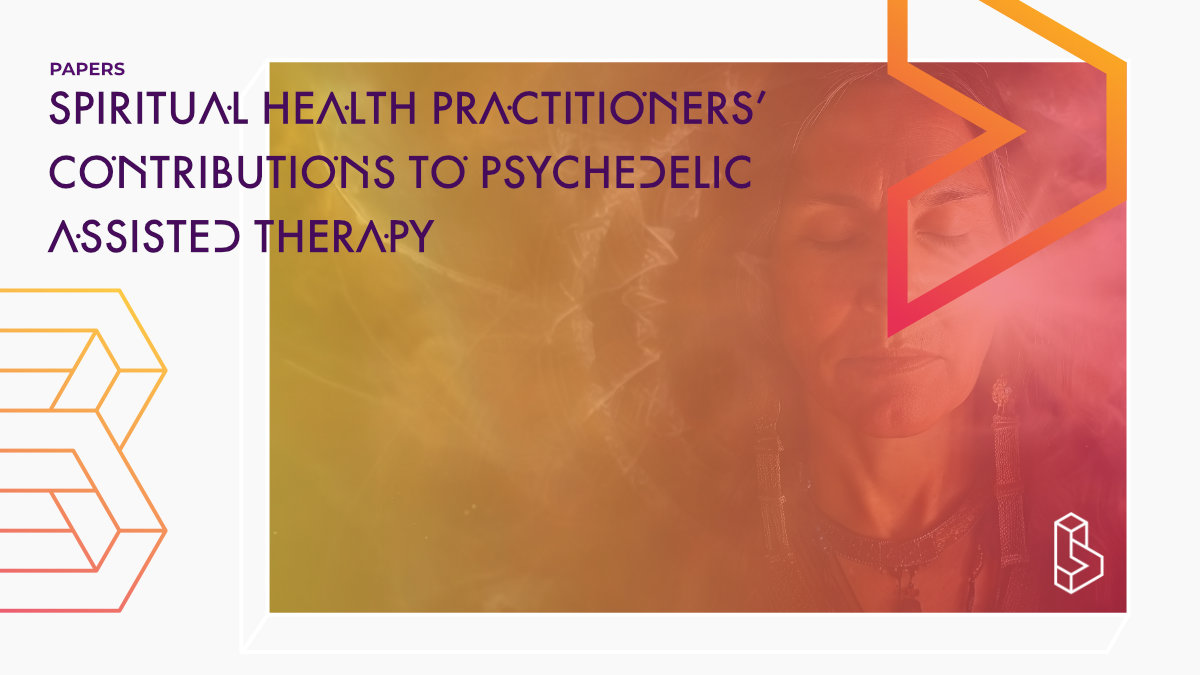This qualitative study (n=15) explores the roles and competencies of spiritual health practitioners in psychedelic-assisted therapy (PAT). The findings reveal seven themes, categorizing unique contributions like competency with spiritual material and awareness of power dynamics, as well as general contributions such as utilizing a therapeutic repertoire and fostering interdisciplinary collaboration. The study emphasizes the importance of delineating the roles and qualifications of spiritual health practitioners to enhance the quality and standards of care in PAT teams.
Abstract of Spiritual health practitioners’ contributions to psychedelic assisted therapy: A qualitative analysis
“Background: Psychedelic-assisted therapies hold early promise for treating multiple psychiatric conditions. However, absent standards for the care, teams providing psychedelic-assisted therapy pose a major roadblock to safe administration. Psychedelics often produce spiritually and existentially meaningful experiences, and spiritual health practitioners have been involved in administering psychedelic-assisted therapies in multiple settings, suggesting important qualifications for delivering these therapies. However, the roles and competencies of spiritual health practitioners in psychedelic-assisted therapies have not been described in research.
Method: This study examined interviews with 15 spiritual health practitioners who have facilitated psychedelic-assisted therapy. Thematic analyses focused on their contributions, application of expertise and professional background, and roles in administering these therapies.
Results: Seven themes emerged, comprising two domains: unique and general contributions. Unique contributions included: competency to work with spiritual material, awareness of power dynamics, familiarity with non-ordinary states of consciousness, holding space, and offer a counterbalance to biomedical perspectives. General contributions included use of generalizable therapeutic repertoire when conducting PAT, and contributing to interdisciplinary collaboration.
Implications: Spiritual health practitioners bring unique and specific expertise to psychedelic-assisted therapy based on their training and professional experience. They are skilled at interprofessional collaboration in a way that complements other clinical team members. Psychedelic-assisted therapy teams may benefit from including spiritual health practitioners. In order to ensure rigorous standards and quality care, further efforts to delineate the roles and necessary qualifications and training of spiritual health clinicians for psychedelic-assisted therapy are needed.”
Authors: Caroline Peacock, Jennifer S. Mascaro, Erin Brauer, Ali J. Zarrabi, Boadie W. Dunlop, Jessica L. Maples-Keller, George H. Grant, Charles L. Raison, Fayzan Rab & Roman Palitsky.
Summary of Spiritual health practitioners’ contributions to psychedelic assisted therapy: A qualitative analysis
Introduction
Psychedelic assisted therapy (PAT) involves the administration of a psychedelic compound, coupled with psychotherapeutic intervention or support, and may be effective for a range of difficult-to-treat conditions. However, the specific roles, functions, and competencies of spiritual health practitioners in PAT have not been systematically studied.
Roles of SHPs in PAT
Find this paper
https://doi.org/10.1371/journal.pone.0296071
Open Access | Google Scholar | Backup | 🕊
Cite this paper (APA)
Peacock, C., Mascaro, J. S., Brauer, E., Zarrabi, A. J., Dunlop, B. W., Maples-Keller, J. L., ... & Palitsky, R. (2024). Spiritual health practitioners’ contributions to psychedelic assisted therapy: A qualitative analysis. Plos one, 19(1), e0296071.
Study details
Participants
15
Humans

